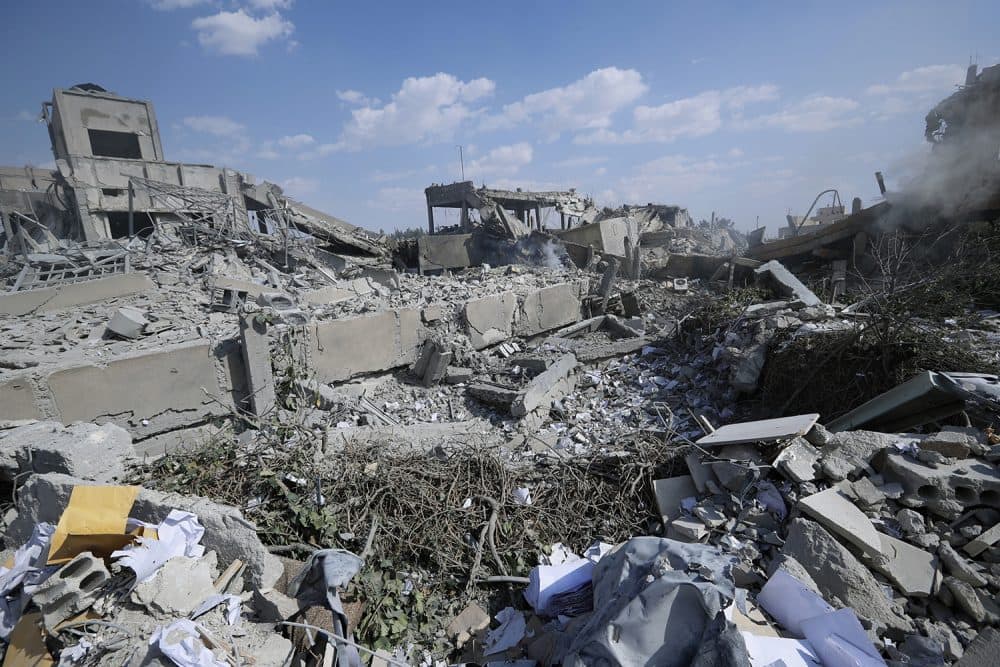Advertisement
After The U.S. Strikes Syria, What's Next
Resume
After the airstrikes, is the United States on a collision course with Russia? And, is a new kind of Cold War brewing?
Guests:
Nahal Toosi, foreign affairs correspondent at Politico. @nahaltoosi
Ian Lustick, professor of international relations at the University of Pennsylvania with a focus on the Middle East.
John Kornblum, former assistant U.S. secretary of state for European affairs and former deputy U.S. ambassador to NATO.
From The Reading List:
The Washington Post: President Trump declares victory as Pentagon details U.S.-led strikes in Syria — "President Trump declared victory Saturday in the largest application of military force he has ordered, as the U.S. ambassador to the United Nations vowed that the United States is ready to launch another strike if the Syrian government uses chemical weapons in the future."
Vox: How Obama’s “red line” fiasco led to Trump bombing Syria — "Assad’s continued use of chemical weapons offers even more evidence of how badly the Obama administration misjudged and mishandled the “red line” moment. It’s one of the biggest problems Obama left for the current occupant of the Oval Office."
More than one hundred missiles rained down on Syria on Friday – a joint strike by the U.S., Britain, and France. The intended targets: Syria’s chemical weapons facilities. President Trump called it “mission accomplished.” But what is the U.S. “mission” in Syria? Do those strikes change anything in the brutal, seven-year-long civil war? And how might Russia respond – as a key ally of Syria’s president, Bashar al-Assad?
This hour, On Point: the global risks of the Syrian morass.
-- Melissa Block
This program aired on April 16, 2018.